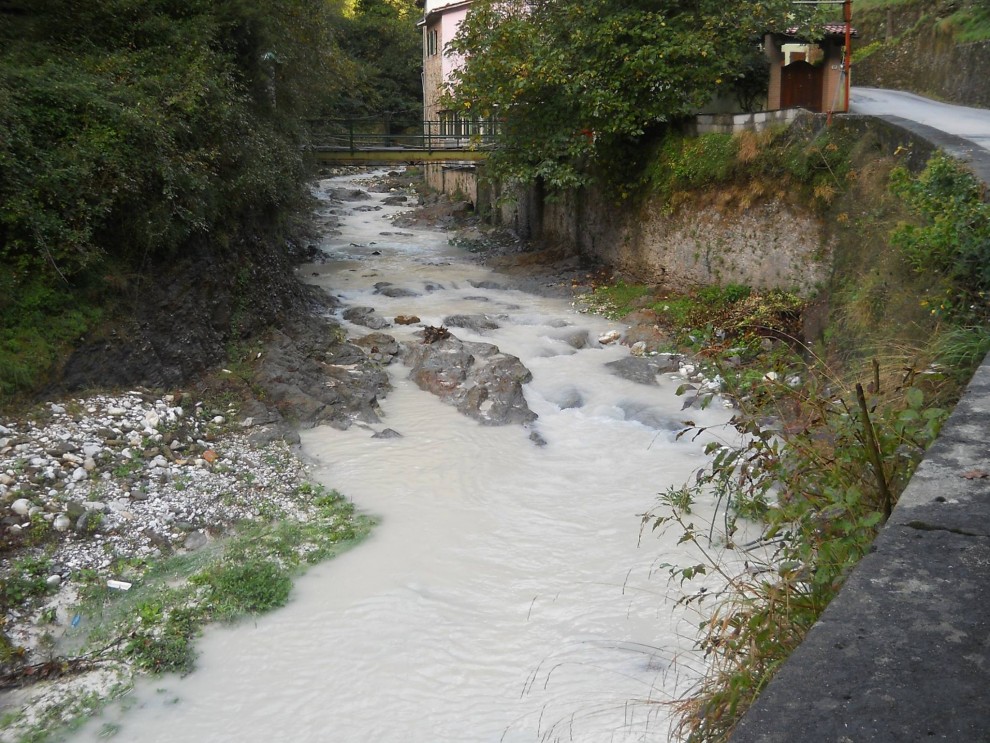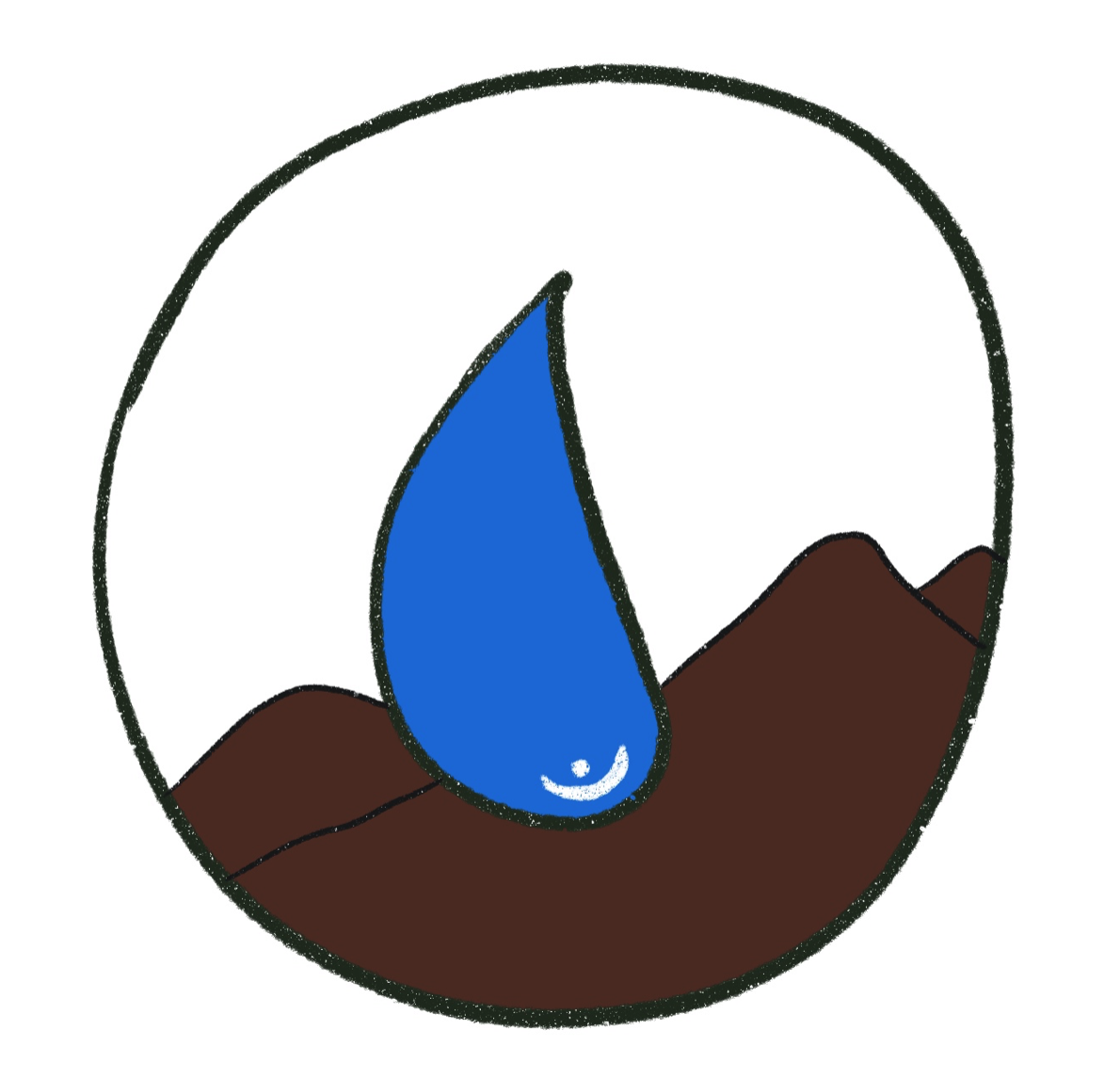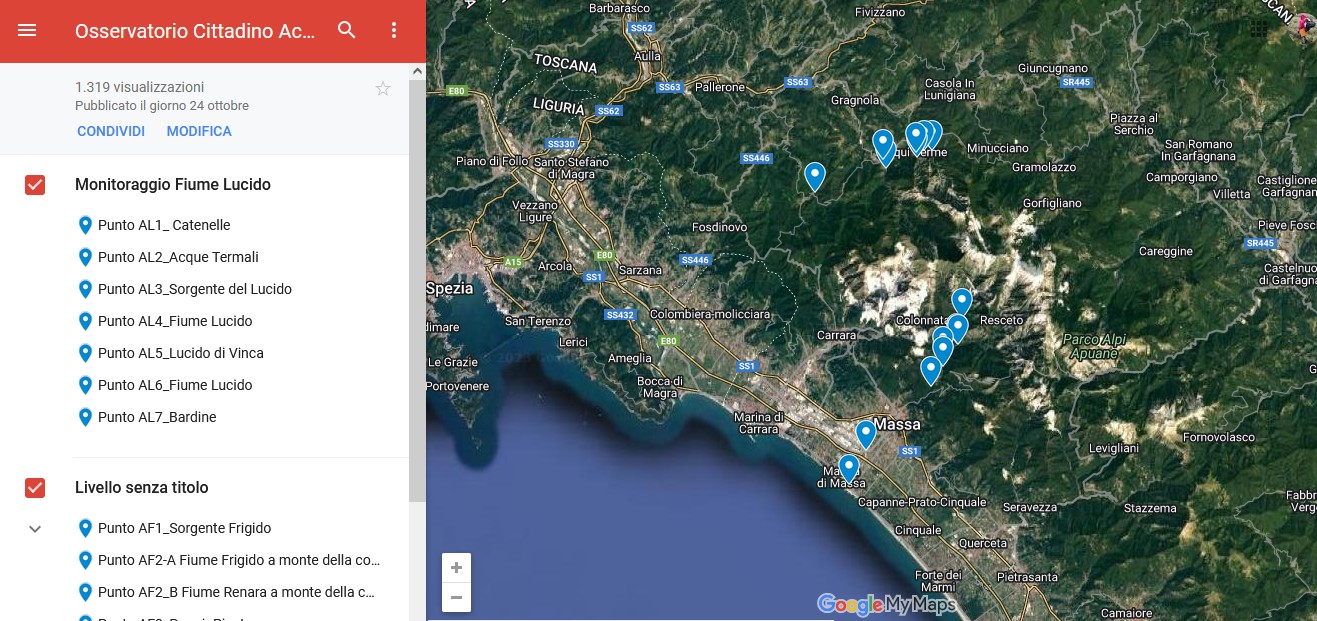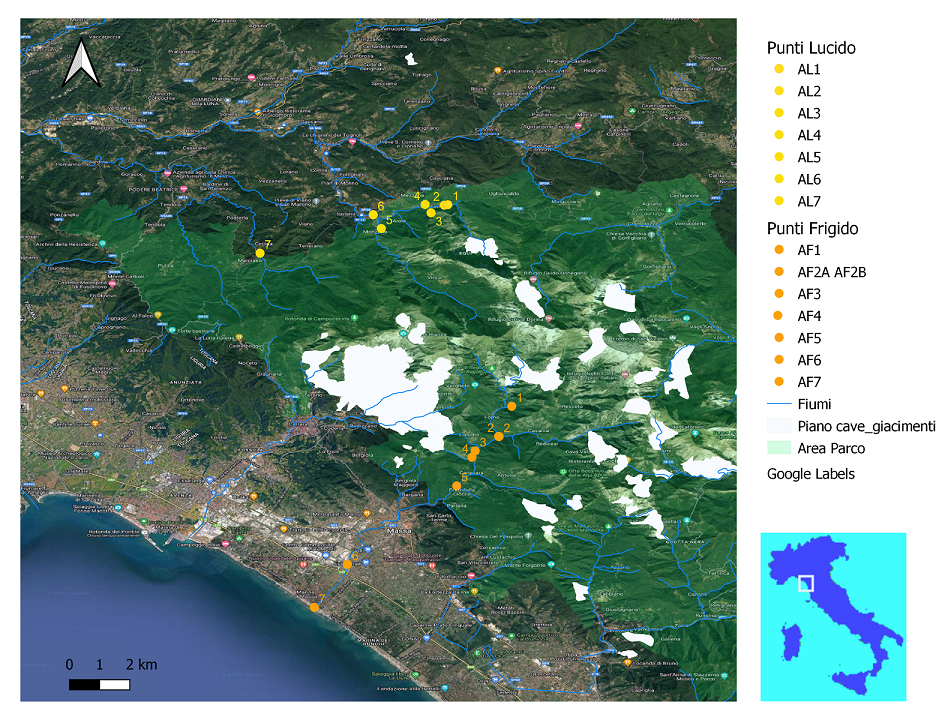Project Description:
The project aims to assess the quality of water resources, including rivers, spring waters, thermal waters and underground waters in the Apuan Alps in Italy that are affected by marble quarry pollution, and demanding the protection of this water-related ecosystem. We plan to create a citizen science initiative to monitor water quality over five months in the Lucido and Frigido River basins: Lucido river basin is a little-studied water basin in the area, instead, the Frigido River basin is the most polluted.
Project Type: Kick Starter
Theme: Healthy Planet, Water
Mentor: Savita Willmott
The first citizen science project on water monitoring in the Apuan Alps Rivers
“Raise awareness and monitor the quality of water resources affected by marble quarry pollution, producing new research-based knowledge of a little-studied area, demanding its defense and protection.”
The Citizen Observatory of Apuan Waters (COAW) project engaged local citizens through participation in training, monthly water monitoring and public events.
Citizens involved in the project are members of many local organizations, such as Apuane Libere, Gruppo di Intervento Giuridico, Athamanta, Collettivo Tirtenla, Legambiente e AlterECo which are firmly committed to social activities, environmental local care, and eco touristic promotion of the territory.
The Carrara marble extraction district has already changed the landscape of the Apuan Alps. Although the Apuans Alps has been declared a UNESCO World Heritage Site, it hosts 165 active caves and 510 closed ones. This karstic area is extremely rich in underground water. We monitored the northern part of the natural park, a little-studied area, assessing 7 points across the Lucido River, including spring waters and thermal spring waters in Equi Terme which are also a tourist attraction for the caves.

We also monitored the Frigido River, in Massa, with 7 points along its longitude from the spring in Forno until the outfall in Massa city. Furthermore, we took one point as background monitoring in the Bardini River.
We created the first Citizen Observatory. which can be viewed in the below maps:
The project started in July 2023 with a public event in Massa and two training courses for citizens on monitoring water quality: how to assess water quality, how to use field instruments and kits, how to interpret data and edit reports.

They learned how to assess water turbidity using Secchi Disk and Turbidity disk; citizens understood how to properly measure chemical and physical water parameters with a multi parameters probe to test pH, conductivity, and total dissolved solids. Finally, they also learned how to develop a field test to assess the heavy metals concentration using field kits.

The project’s main goal has been to empower citizens, but mostly local environmental organizations on how to assess the water quality, edit a scientific report and communicate scientific data.
The project raised awareness about how to better understand and assess the risks of marble quarry pollution on this fragile ecosystem, bringing science closer to society and citizens and helping them have a more structured dialogue with regional and local authorities. The citizen science activity provided a supportive environment for building positive relationships between the organizations involved in the same cause.
Data collected in these 5 months of monitoring are available in the monthly reports. All tools, reports, tutorials and manuals are free to download here.
Across these 6 months projects, we reached a high mass media cover that helped spread our mission and activities.

Our final public event is planned on 15th December in Seravezza (LU) in Tuscany. The program is extensive, with a focus on water protection among project data results, documentary projections and local organizations’ interventions on different topics related to the marble extraction impacts in Apuans.
At the end, we will also project the documentary “Donde los ninos no suenan” by Stefano Sbrulli on the peruvian mining impacts. The event will continue after the dinner, with a film projection promoted by the cinema itself with “Evil does not exits” on water pollution.





